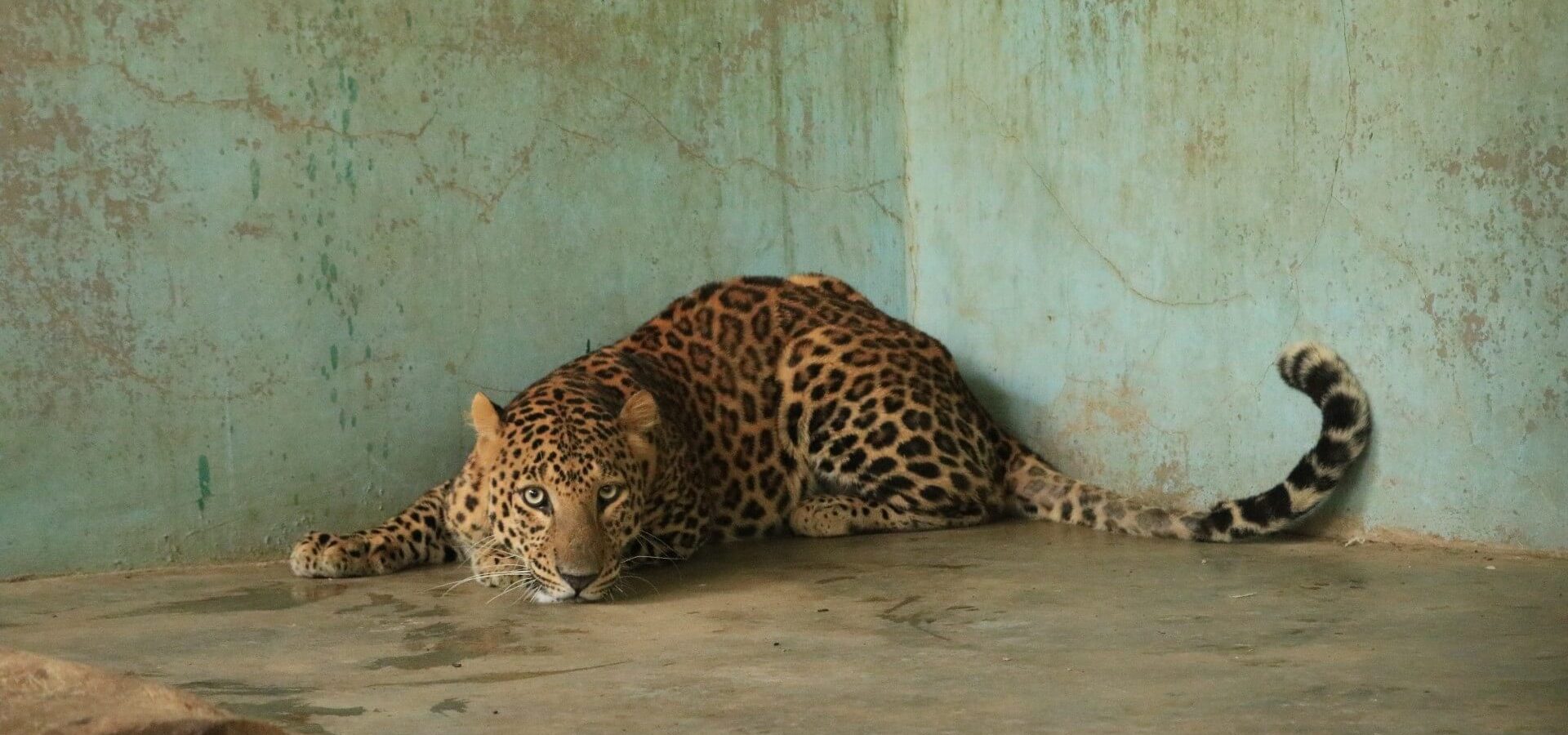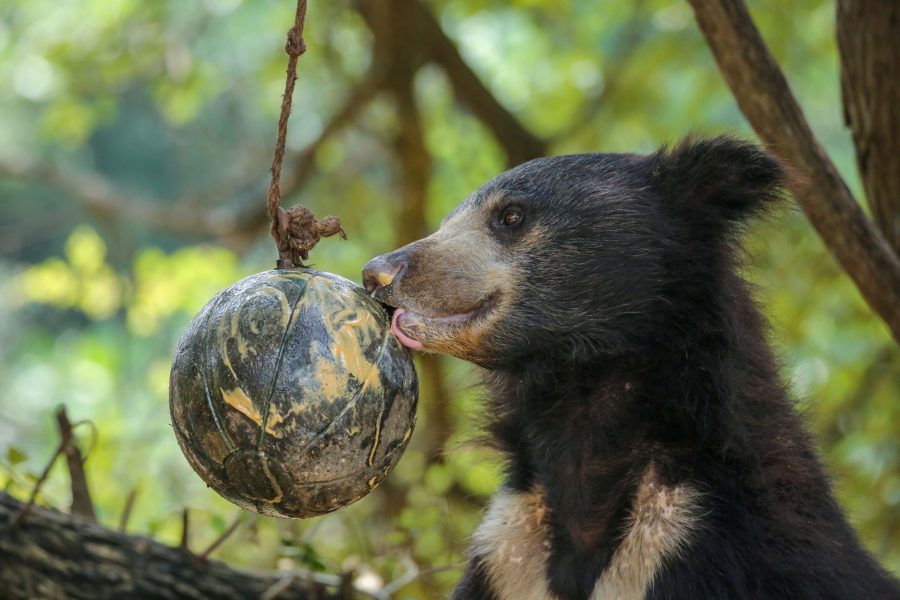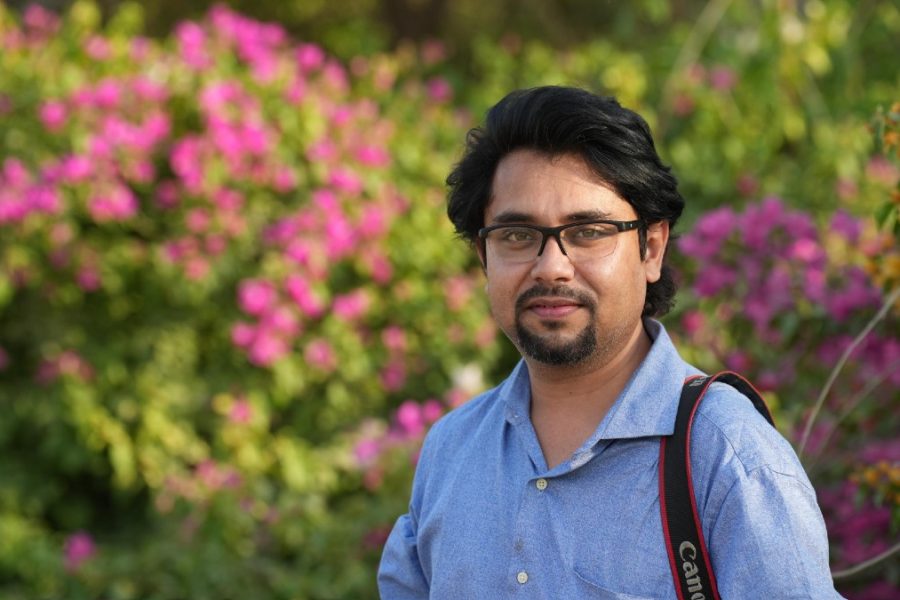Nocturnal in nature, leopards can seldom be spotted in the broad daylight sprawled in open fields, unless they have been ill or rendered hurt. A sight similar to this was observed by the residents of a village in Yawal sub-division of Jalgaon district in Maharashtra, when they were left bewildered upon spotting a leopard in the middle of the field during the day. Understanding the dangers of approaching or disturbing a wild animal, the residents immediately reached out to the Maharashtra Forest Department and informed them about the presence of the recumbent leopard.
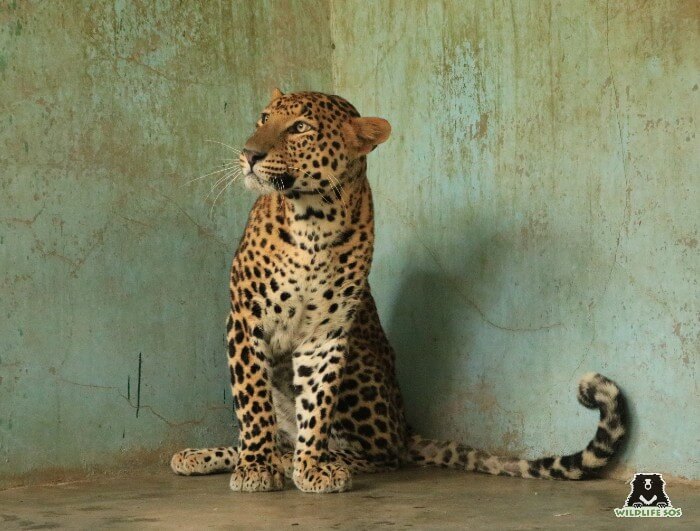
The leopard’s unusual behavior was of particular concern as it appeared weak and thus, was immobile. Working closely with Wildlife SOS, the Maharashtra Forest Department reached out to our leopard team operating out of the Leopard Rescue Centre in Junnar division for assistance. When the officials reached the field where the leopard was, they learnt that the leopard was, indeed, severely dehydrated and weak.
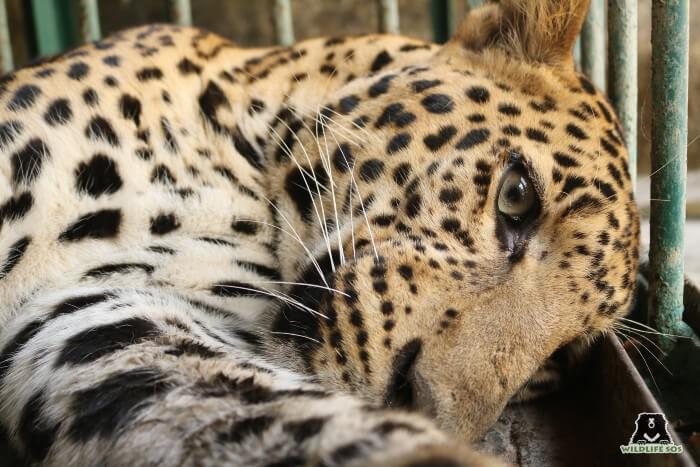
The leopard was estimated to be a male, approximately 8 years of age. It was crucial that the leopard was safely translocated for the necessary medical treatment as his presence would put his life and safety at risk. The local communities were also in the impertinent fear of harm to their lives and livestock with an adult leopard lying close to where they lived.
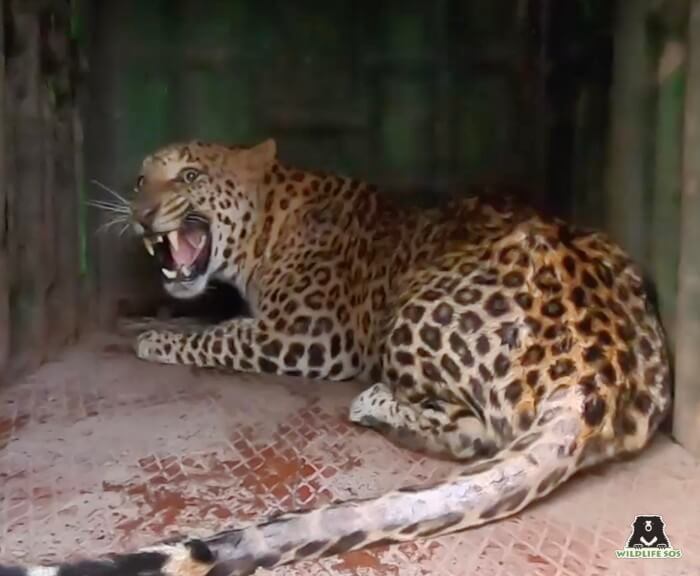
The leopard was rushed to the Wildlife SOS Leopard Rescue Centre for detailed medical examination and treatment. His preliminary assessment revealed that the animal was suffering from a severe liver infection which was the cause of intense pain surfacing from his abdominal area. The intensity of pain was such that he was unable to hunt actively leading to gradually losing strength and growing malnourished.
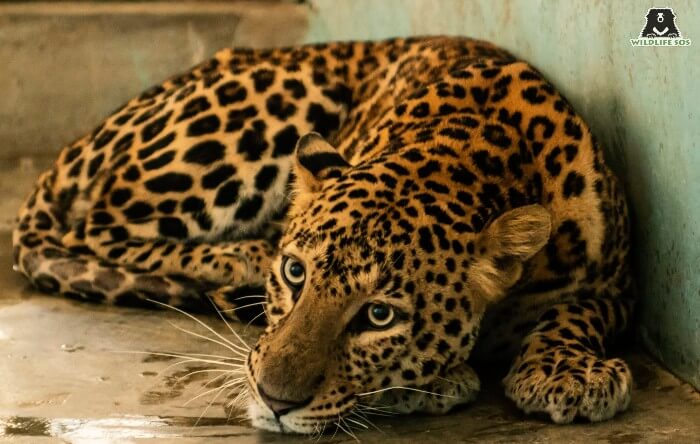
Close to a geriatric age, the first few weeks of his medical treatment were crucial. He was administered broad spectrum antibiotics, fluid therapy, pain management as well as liver-boosting supplements. He gradually grew alert and regained his strength over the course of next few weeks. The veterinary team at the Wildlife SOS Leopard Rescue Centre regularly ran blood tests and observed his behavior to ascertain his progress. A final examination, earlier this week, confirmed that he has recovered completely from his ailment and is fit to be released to the wild.
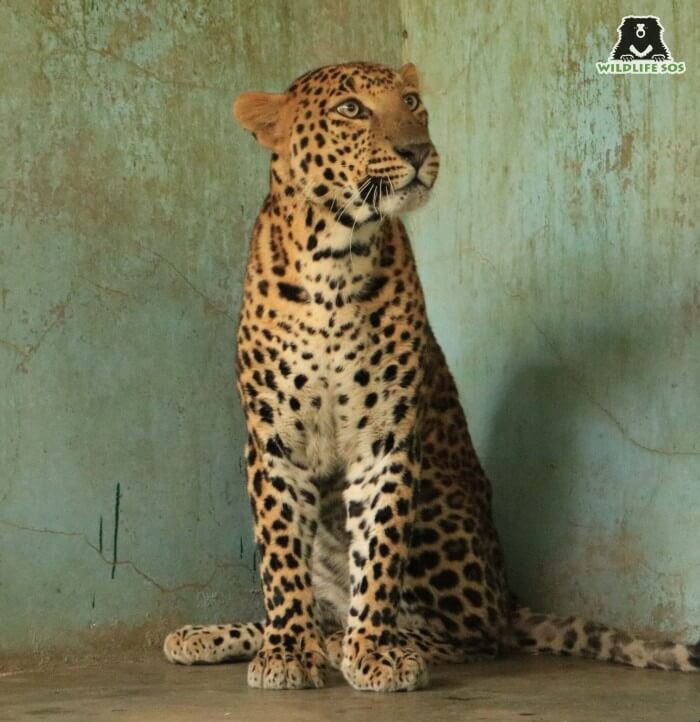
The Wildlife SOS team accompanied Maharashtra Forest Department for the safe release of the leopard. The leopard was active as he dashed from the cage and straight into the thickets of the forest, disappearing into the foliage. The leopard was released in a suitable habitat for leopards, away from human habitation and a rich, suitable prey base. The treatment of wild animals such as leopards needs to be conducted with utmost care while also ensuring safety measures of all the three stakeholders – the Forest Department, the veterinary team and the local communities.
Wildlife SOS has been working actively in the field of leopard conservation since 2007, with the support of the Maharashtra Forest Department. We regularly conduct capacity-building workshops with local communities and Forest Department, and aim to minimise the conflict between humans and leopards. You can read all about our leopard project here.

